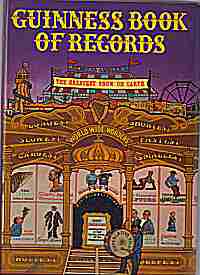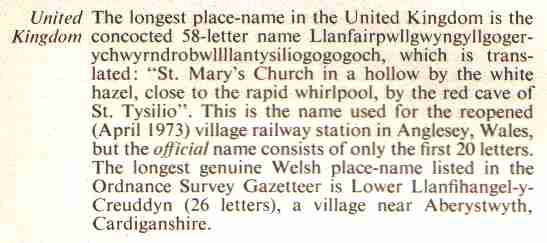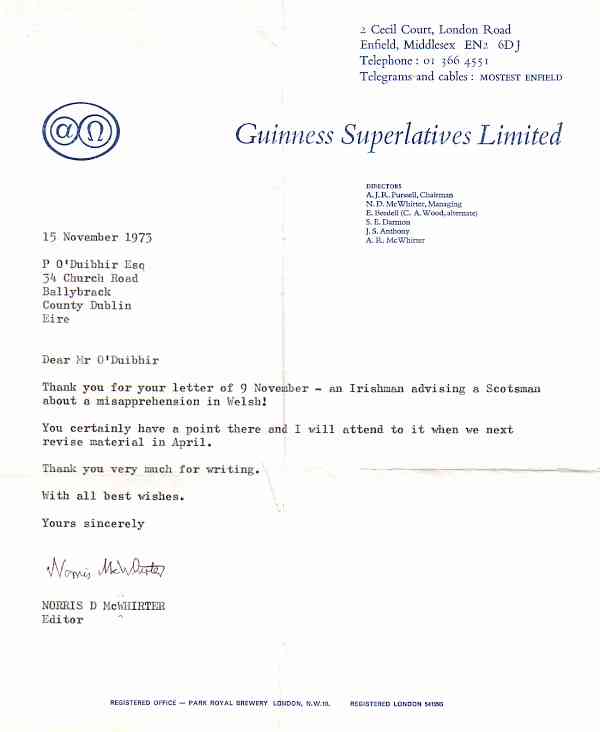
Llanfair and the Celtic cut
 According to Wikipedia the Guinness Book of Records first appeared in Britain in 1955 , having been commissioned by the Guinness brewery as a book for settling bar bets. It was written by Ross and Norris McWhirter, twins and noted British athletes and journalists, who continued to publish it and related books for many years. Ross was shot dead by the IRA on 27 November 1975 and his brother continued to edit the book for a further 20 years. It now appears under the title Guinness World Records, claiming sales of 100 million copies in 100 different countries and 37 languages.
According to Wikipedia the Guinness Book of Records first appeared in Britain in 1955 , having been commissioned by the Guinness brewery as a book for settling bar bets. It was written by Ross and Norris McWhirter, twins and noted British athletes and journalists, who continued to publish it and related books for many years. Ross was shot dead by the IRA on 27 November 1975 and his brother continued to edit the book for a further 20 years. It now appears under the title Guinness World Records, claiming sales of 100 million copies in 100 different countries and 37 languages.
In the 20th edition of the Book, published in October 1973, the entry below regarding the longest placename in the UK appeared.
I had been learning Welsh for a short while before and one of the things that made an impression on me was that what seemed like combinations of consonants in English were actually separate and distinct letters in the Welsh alphabet - such as "ll" and "ch".

| Being young and prickly about slights to a person's nationality, intended or otherwise, I could not resist the temptation to write to the editors in the following terms: |
|
34 Church Road
Ballybrack County Dublin Irish Republic 9.11.73 Dear Messrs McWhirter Re: Longest Placename in the UK (page 102, 20th edition GBR) Llanfair P G has only 51 letters, not 58, as both "ll" and "ch" count for only one letter each in the Welsh alphabet. Many people are under the impression that the days when Encyclopaedia Britannica could get away with the entry: are gone forever. Yn eiddoch yn wir Pól Ó Duibhir |
|
|

